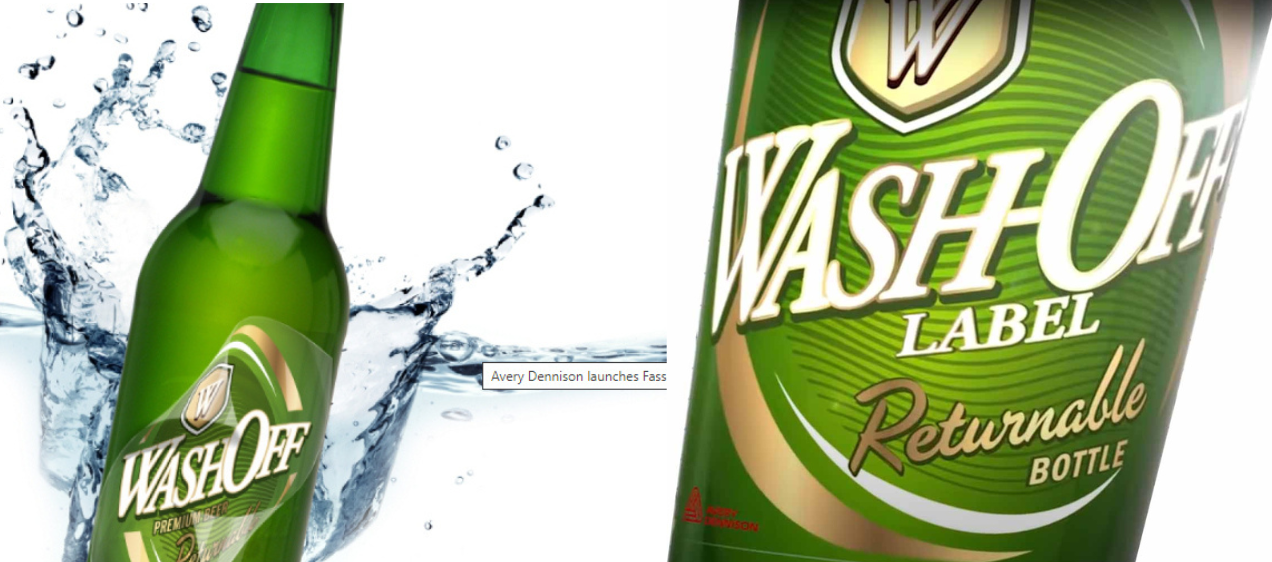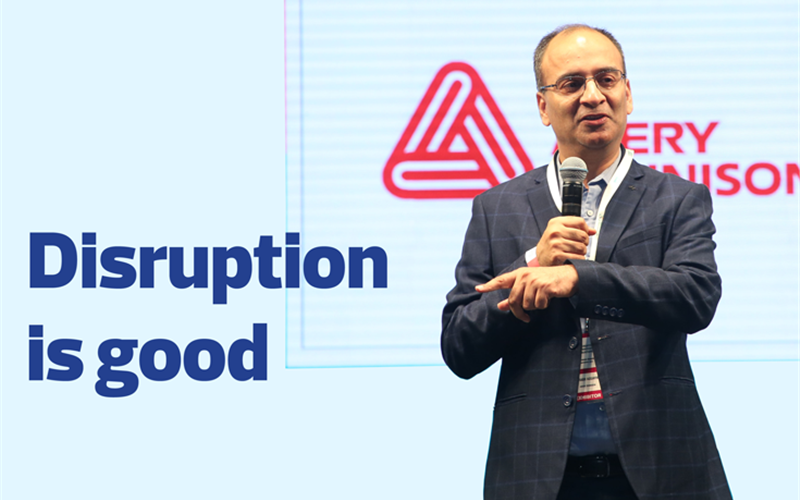Disruption is good - The Noel D'Cunha Sunday Column
Saurabh Agarwal, vice president and general manager for materials group, Avery Dennison discusses how to tackle the two major disruptions - sustainability and digitalisation
10 Sep 2023 | By Noel D'Cunha
Much has changed since the last LMAI Conference in Kochi and the Labelexpo Europe in Brussels in 2019. The year 2020 marked a significant turning point, as the Covid-19 pandemic triggered a global crisis that is still ongoing. The pandemic caused a collapse of the global supply chain, leading to a volatile economic landscape.
Many rich governments together injected more than USD 8 trillion into the market to address the crisis and lowered the interest rates to levels not seen since the 2007 financial crisis. However, the supply chain remained hampered, leading to an inflation level that has not been seen in the last 40 years. To curb inflation, the central banks of rich nations raised interest rates, leading to slowing demand in many parts of the world.
India's response to the pandemic was more conservative, and the country's macroeconomic stability held up better than many other nations. The country's structural reforms also put it in a favourable position. However, India is not immune to global economic challenges, nevertheless, the country is doing much better than others.
The crisis has taught us the importance of resilience and faith in our ability to survive in any situation.
Disruption is good, and how
Society faces many challenges today, but we believe that India is poised for significant change in areas such as democracy, demographics, and demand.
While disruption is happening more rapidly than ever, it can also bring positive changes and opportunities. It is our responsibility to seize these opportunities by planning and taking action.
In our industry, two major disruptions are sustainability and digitalisation. Sustainability is crucial because we cannot continue to take from the earth without replenishing it. Companies are beginning to recognise the importance of sustainability due to changing consumer preferences and government regulations such as extended producers' responsibility (EPR).
Creativity and innovation are key to achieving sustainability.
Avery Dennison and sustainability
One example of a sustainable solution for bottles is Avery Dennison's wash-off for labels. It allows the reusability of bottles and helps reduce costs while benefitting the environment and the brands using them.
As a leader in material science, Avery Dennison places great importance on sustainability. We carefully consider the sourcing of our products, the amount of materials used, recyclability, greenhouse gas emissions, water consumption, and more.
It is our commitment that by 2030 100% of our standard label products will contain recycled or renewable content. All of our regions will have labels that enable circularity of plastics. We will source 100% of paper fibre from certified sources focused on a deforestation-free future. We will divert 95% of our waste away from landfills. We will reduce our Scope 1 and 2 GHG emissions by 70% from our 2015 baseline and work to reduce our 2018 baseline Scope 3 GHG emissions by 30%, with an ambition of net zero by 2050.

Digitalisation on the Fast Lane
The implementation of digitalisation has been gaining momentum lately. For instance, when you visit hotels, you may come across menu cards that feature QR codes. This poses a challenge for print providers who were previously printing these cards. Failure to adapt to the changing times will result in them realising that their services are no longer needed in this area of their operation.
So, how can they adapt? Thanks to high-speed internet, phone devices equipped with software can now connect directly with products. This is known as IoT, and it allows every physical product to have a digital identity that a QR code or RFID can trigger.
The power of digital is immense. It can transform humble labels into powerful tools that make brands more secure, traceable, and engaging for consumers.
Avery Dennison is leading the way in the digitalisation of the label industry through UHF RFID. As world's largest UHF RFID partner, we have so far manufactured multibillion RFID inlays.

Crystal-gazing India's growth
India's economy reached the first USD trillion mark after 60 years. It took seven more years until 2014 for the next trillion dollars to be added, and only five years until 2019 for the third trillion.
The Covid-19 pandemic did disrupt this momentum, but India is projected to add a trillion-dollar to its economy every three years.
India's current per capita income is approx. USD 2,500, and is expected to double by the end of the decade. This growth will move India from a lower middle-income economy to a middle-income economy. Unlike many other countries in the region that rely on exports, India's economy is driven by domestic demand. Domestic consumption and investments are the main drivers of India's growth. India's population plays a significant role in driving domestic demand, particularly the large number of young people. With a median age of 28 years, India's youthful demographic is a major factor in the country's economic growth. This contrasts with many parts of the world, where the median age is significantly higher. As India's young population is able to produce and consume more goods, it is expected to contribute significantly to the country's economic growth.
As a labelling and packaging industry, it is important that we seize the opportunities presented by a growing population and improve our services to meet their needs. This is not only an opportunity, but also a responsibility. Therefore, we must ask ourselves: What steps are we taking to prepare for the future?
Achieving progress won't come without effort. We must enhance our standards, develop our abilities, and expand our reach to ensure a prosperous future. Creativity, innovation, sustainability, and to add, digitalisation, will all play significant roles in this.
Avery Dennison remains dedicated to the Indian label industry.












 See All
See All